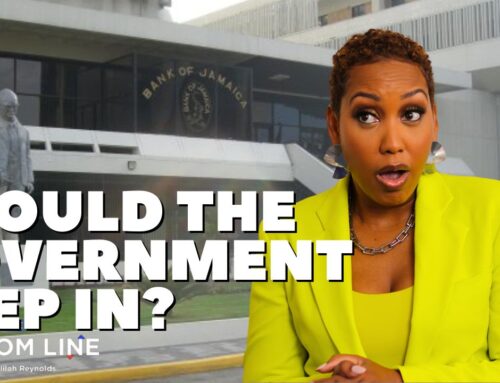
BOJ to work with telecoms in rolling out digital Jamaican dollars
The Bank of Jamaica (BOJ) plans to partner with local telecommunications providers to test digital Jamaican dollars next year.
BOJ Governor Richard Byles said the potential partnership could see thousands of unbanked and underbanked Jamaicans added to the formal banking system.
The announcement of the pilot of the Central Bank Digital Currency (CBDC) was made by Finance Minister Dr. Nigel Clarke as he opened the 2021/22 budget debate in Parliament.
Governor Byles said CBDC will be a fiat currency, having the same value as the physical dollar. It’s expected to be distributed by the Central Bank to other banks and payment service providers who will then distribute it to their customers.

BOJ Governor, Richard Byles
However, with many Jamaicans still without a bank account, the Central Bank aims to use the cellphone networks to recruit CBDC holders.
“So through a simple app they will be able to upload their information to open a simple bank account and having been approved to have CBDC, they are now included in the financial system…by using the telecoms and simplified bank account opening process we hope to recruit thousands to be bank customers,” said Byles.
Byles said he believes cellphone to cellphone activity will be the most prevalent mode of use for the digital dollars, especially as persons will not need to have the internet to make a transaction. He said the Bank will also be undertaking a campaign to address any skepticism.
“On your phone you can use a special code to pass to another phone and in that way make a payment even if there is no wifi or internet,” he said.
At the same time, he said the digital dollars could be placed on a card similar to credit and debit card. The difference is that CDBC cards would present no extra cost to consumers and merchants.
“If you took a [physical] J$100 out and paid a grocer, there is no cost to you with that transaction. It’s the same thing that will happen with CBDC. But when you use a debit or credit card somebody has to pay the financial institution whether it is the merchant or the consumer,” reasoned Byles.
The Governor said all stakeholders will benefit from the introduction of CBDC as it will reduce the cost of doing business, while promoting more efficient and safe transactions.
“BOJ spends a tremendous amount of money to produce cash and banks use a lot of resources to distribute the cash and businesses have to pay to keep it secure. All of that disappears as we replace physical cash with digital currency,” he said.
Meanwhile, Chief Business Development Officer at Bitt Inc, Simon Chantry, has commended the BOJ for taking the step of innovation and embracing the technology.

Chief Business Development Officer at Bitt Inc, Simon Chantry
Bitt Inc. pioneered the CBDC concept, as well as M-Money in Barbados, launched in 2016. However, they are not providing the service to Jamaica as their submission to the BOJ was not chosen for the pilot program.
Kalilah Reynolds Media understands eCurrency, based in California, has been selected as the service provider, however the BOJ is yet to confirm this.
In the meantime, Chantry said Bitt Inc remains upbeat about the prospects of CBDC in the region, noting that they recently completed their first merchant transaction (similar to what the BOJ is trying to accomplish) in the Eastern Caribbean with DCash. They plan to go live with that solution at the end of the month.
“We recognize the value of CBDC here given the cost to trade and the exchange between islands. It’s why we established our goal of the Caribbean settlement network…. There’s a lot to be said for leveraging the technology for use within your own domestic economy and financial system but also when you open it up to cross border and cross currency transactions, there’s a lot of benefits for Caribbean islands, so we’re very excited for that future,” said Chantry.
Within the region, the Bahamas also has a digital version of its currency, the Sand Dollar.
China has one of the biggest examples of a retail CBDC currency in the world, with four of its cities now doing preliminary testing on a digitized version of their currency.
Chantry said more Central Banks are catching on to the digital dollar trend and he expects more will be piloting their own versions in short order.
-END-
Ask The Analysts
The Cast David Rose Business Writer, Observer Leovaughni Dillion Investment Research & Sovereign Risk Analyst at JMMB Group
R.A. Williams to list on JSE
The Cast Audley Reid CEO R.A. Williams Distributors Julian Morrison Founder, Wealth Watch JA










Leave A Comment